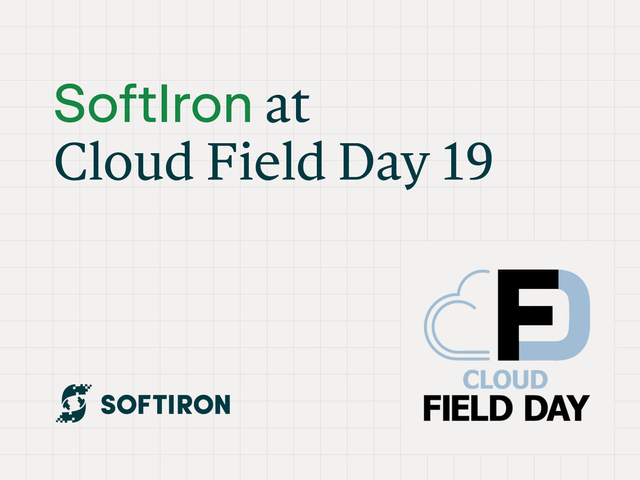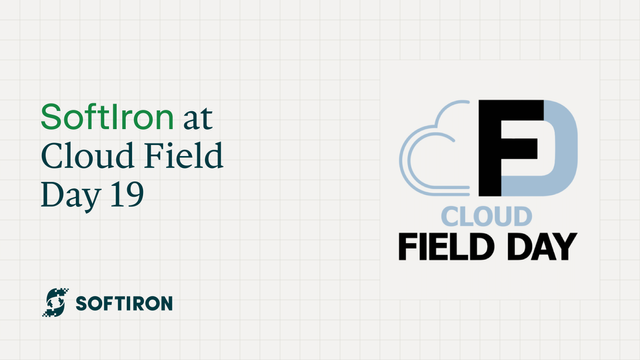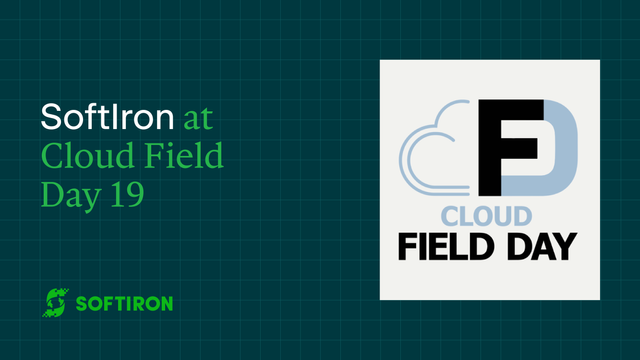Cloud Field Day 19

SoftIron is a worldwide leader in true private cloud infrastructure. HyperCloud by SoftIron allows organizations to build a true private cloud on-premises that deploys, manages and consumes like private cloud. HyperCloud provides the elasticity of cloud in a solution that is fast and simple to deploy, driving extreme agility. HyperCloud delivers the benefits of AWS Outposts or Azure Stack HCI but in a cloud-neutral solution.
Who is SoftIron and what is our value proposition?
Jason Van der Schyff, COO of SoftIron, presented at Cloud Field Day about the company’s mission to simplify and streamline IT infrastructure with their true private cloud offering, HyperCloud. SoftIron aims to provide a public cloud experience on-premises, with a focus on security-by-design and agility. The company has a unique approach to manufacturing, designing, and producing their own hardware and software in-house to ensure security and quality.
SoftIron’s HyperCloud is positioned as a cloud-neutral solution, competing with services like AWS Outposts or Azure Stack HCI, but without being tied to a specific public cloud provider. This allows organizations to deploy, manage, and consume resources on-premises with the elasticity and simplicity of the cloud. HyperCloud is particularly suited for sensitive workloads and data, trusted by industries that require high reliability and security, such as finance, research, national security, and federal agencies.
SoftIron emphasizes their end-to-end control over the production process, contrasting their approach with the industry norm of outsourcing. They operate two manufacturing sites, one in the Bay Area and one in Sydney, Australia. The Sydney facility was co-funded by the Australian Department of Defense under a sovereign industrial capability program, highlighting the importance of secure and local manufacturing in sensitive geopolitical areas.
Van der Schyff addressed questions about the manufacturing process, cost competitiveness, the bespoke nature of their servers, and the scalability of their solution. He also discussed SoftIron’s proprietary operating system and the ability to interface with public cloud services for hybrid or multi-cloud strategies. Additionally, he touched on HyperCloud’s ability to handle distributed storage, disaster recovery, and data replication across regions.
The presentation concluded with a discussion on the industry’s hybrid cloud reality, where many organizations still run workloads on-premises due to various constraints, despite the public cloud’s popularity. SoftIron’s HyperCloud aims to cater to this significant market segment by offering a flexible, secure, and efficient on-premises cloud solution.
SoftIron introduces hyperCloud version 2.0
Charles Ruffino, a Cloud Architecture Fellow at SoftIron, presents the company’s newest version of HyperCloud, which is designed to provide a true private cloud experience within a user’s own data center. He emphasizes that HyperCloud is distinct from mere virtualization solutions, offering full cloud scalability, elasticity, and ease of management akin to public clouds but on-premises.
Ruffino notes that HyperCloud can be deployed rapidly, becoming operational in half a day, and discusses improvements in compute, storage, and interconnect nodes. He highlights that HyperCloud is designed to be self-healing, self-organizing, and nearly infinitely scalable, with an emphasis on security and compliance to high standards (e.g., FISMA High, FedRAMP High, DoD-SRG Impact Level 5).
HyperCloud’s architecture is stateless, allowing for easy expansion or replacement of nodes without extensive setup or downtime. Patching is simplified, with one update affecting the entire cloud in a controlled process, eliminating the complexity and risk associated with traditional patch management.
The conversation also touches on the infrastructure as code, with support for tools like Terraform, and the ability to use HyperCloud with various public clouds, avoiding vendor lock-in. Ruffino addresses questions about network management, licensing models, and the potential for integrating platform-as-a-service components and partnerships to expand the marketplace offerings within HyperCloud.

